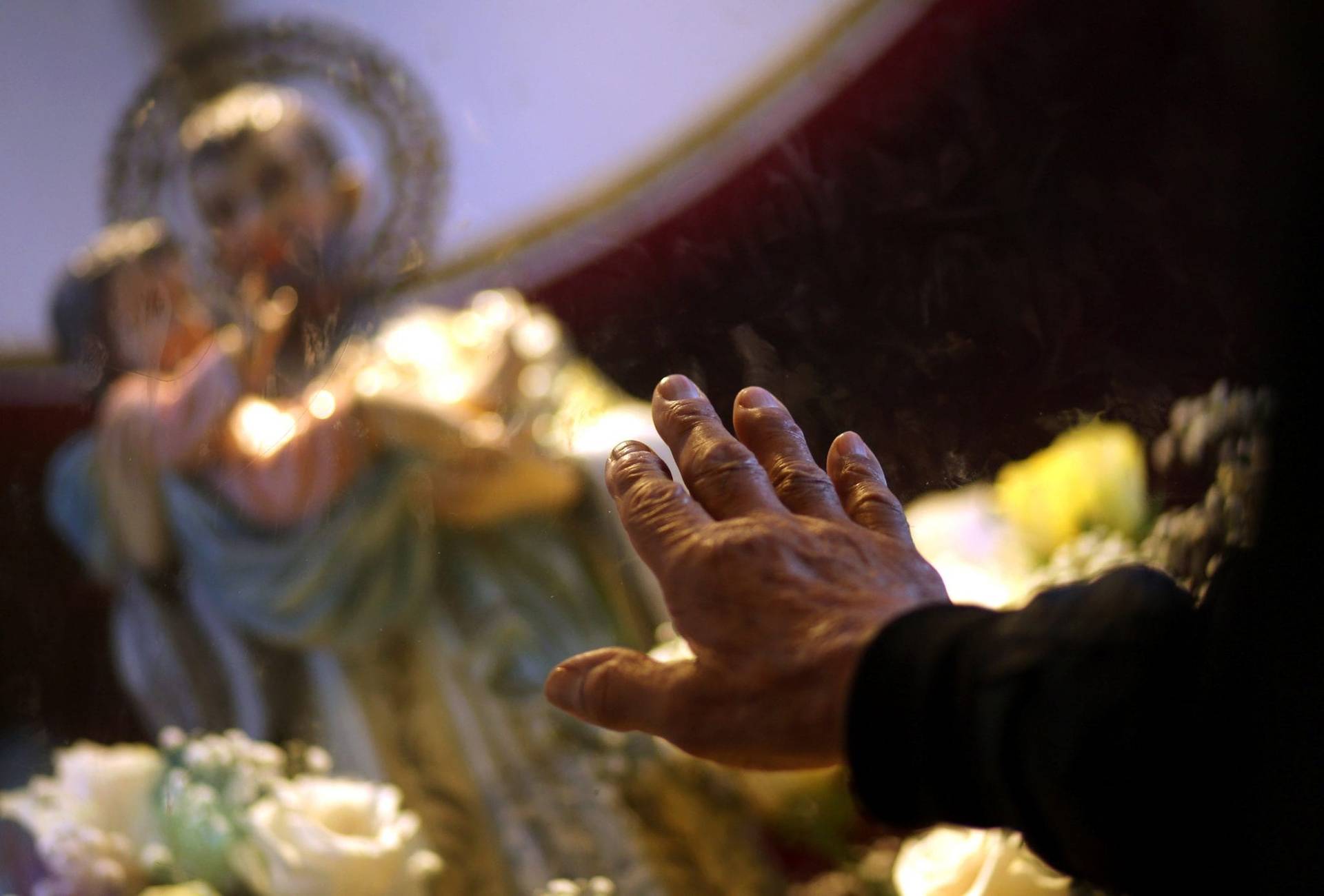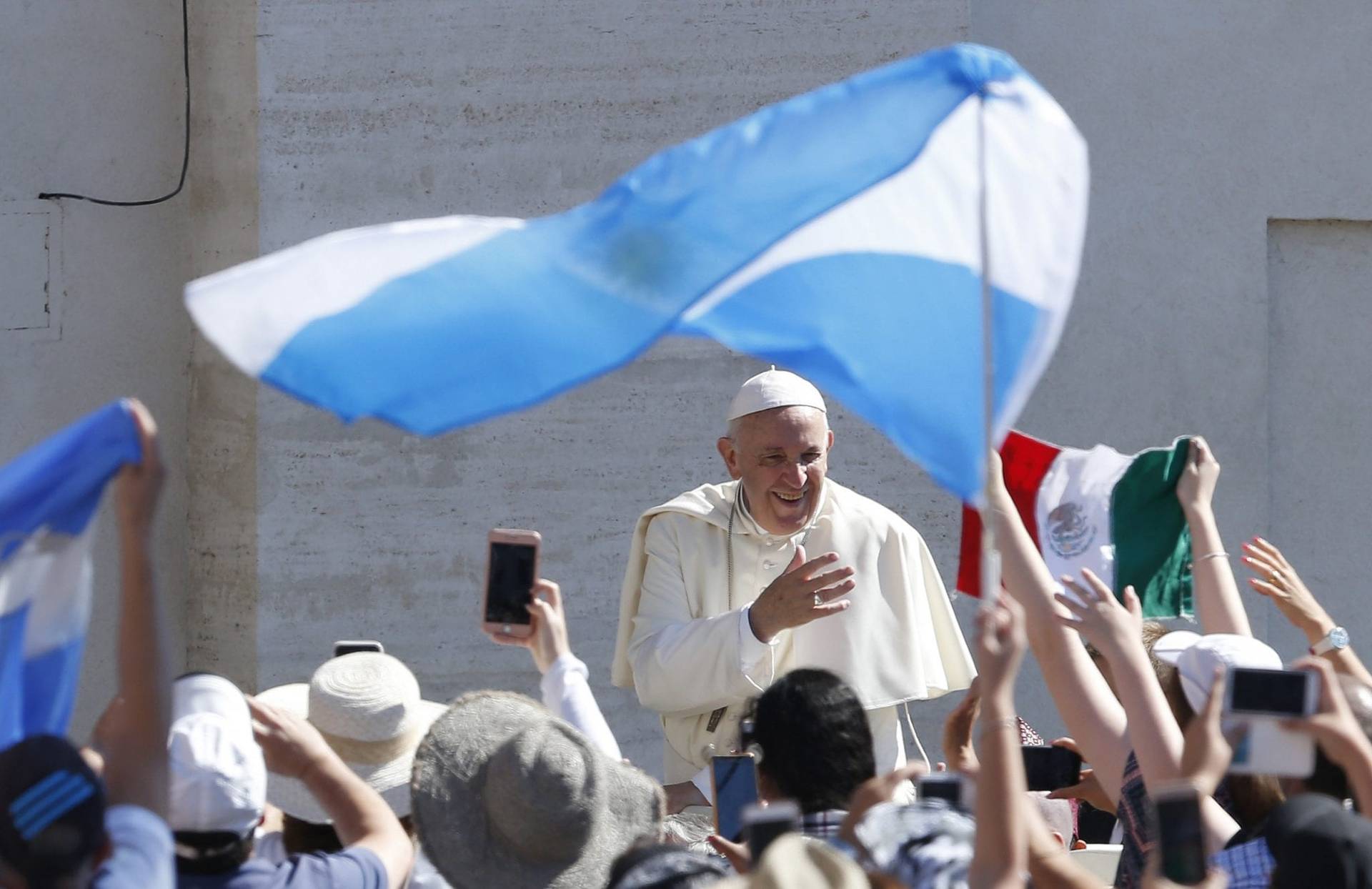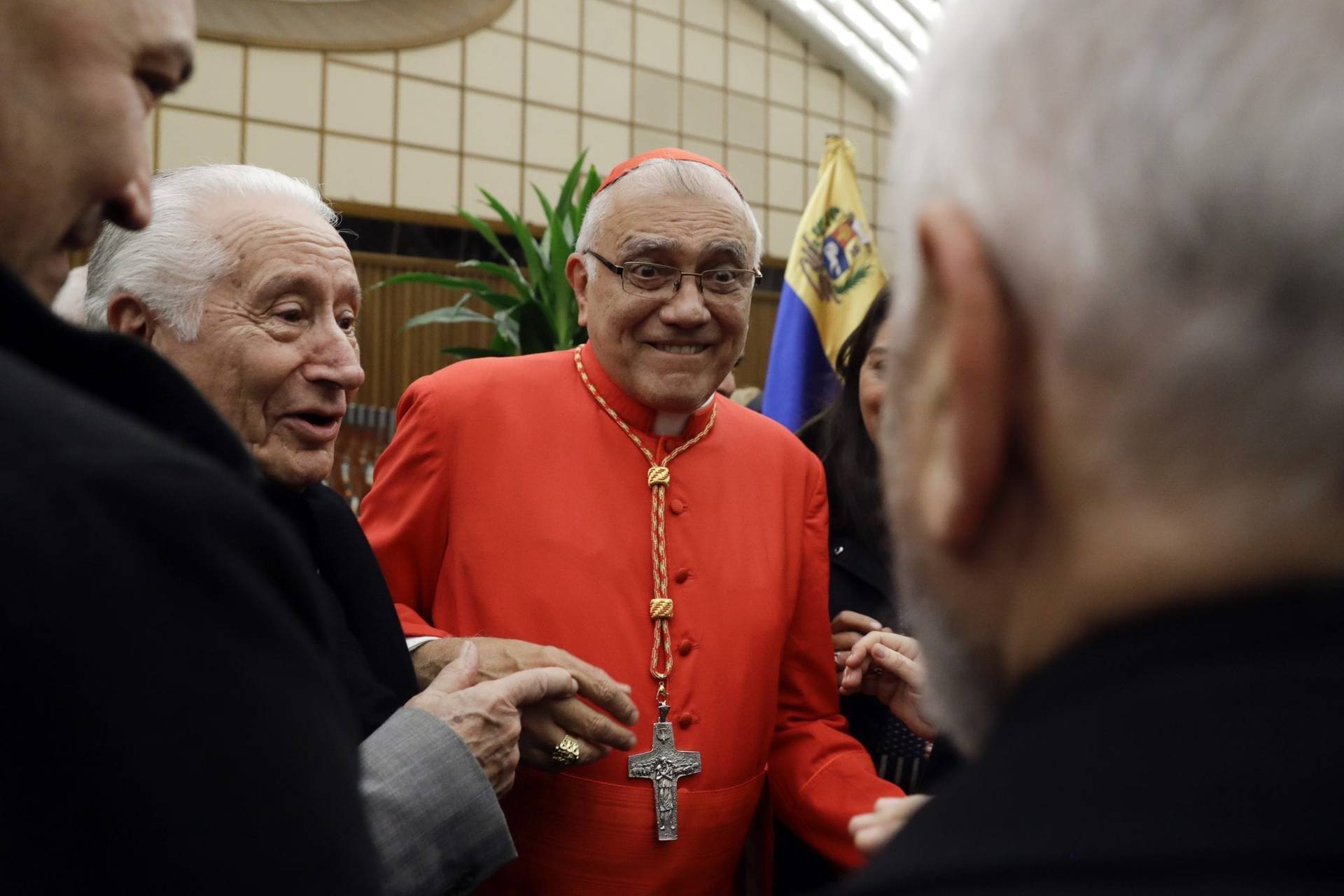SANTA FE, Argentina – As the southern hemisphere winter hits in Argentina, the thousands of homeless on the street are the most affected. A new social media campaign is calling to “Open the Churches” for the homeless.
The campaign was engineered by the same people who were last year calling for the separation of church and state in the build-up to the failed vote in Congress to legalize abortion: Then, the slogans were: “The only Church that illuminates is that which burns” and “Church, garbage; you’re the dictatorship.”
The new campaign uses some of the same imagery, but this time the church building depicted is black, not orange.
Many Catholics have noted an irony in the campaign, since members of the Church are at the forefront of efforts to help the homeless in Argentina.
“The people who call on the Church not to be involved in politics when it comes to fighting abortion, claiming it’s for the government to decide, are the same ones who are urging the Church to do what the state has failed to do: Protect those who live on the outskirts of society, even if many call the steps of Buenos Aires Cathedral, at the heart of the city, their home,” wrote a woman called Maria on Facebook.
Despite the responses from many lay people, the hierarchy has remained on the sidelines in the social media war, choosing not to respond directly to the campaign, instead urging people to join in the many initiatives that are taking place up and down the country to help find “permanent solutions” to the homelessness crisis.
Bishop Gustavo Carrara is an auxiliary of Buenos Aires who serves as a “slum bishop,” coordinating the group of priests who live and minister in the shanty towns of Argentina’s capital. He released a video on Twitter that was shared by the bishops’ conference.
“In these days, some of our brothers have died in the streets, alone, due to the cold, and this is very painful,” he said. “There are many Christians. and women and men of good will. who go out every night, during the ‘solidarity nights’ to visit these brothers and to bring them something to drink, eat, a blanket to fight the cold. But above all, they bring ‘human warmth’ to remind them that we know they are our brothers.”
In addition, he said, throughout the year there are many centers where the organizers of the “solidarity nights” stock up for winter, and these include Caritas offices, parishes, social organizations and Evangelical churches.
“But these painful events [deaths due to cold] make us open our heart, be more charitable,” Carrara said. “We ask God that He moves our hearts to look for concrete solutions.”
The lowest estimates claim there are some 1,100 people living in the streets of Buenos Aires alone. In the past 11 days, five people across the country have died from the cold, one of them in the capital.
This is what led to the social media campaign — “#abranlasilgesias” – primarily on Instagram.
Father Guillermo Marco, once the spokesman for Cardinal Jorge Mario Bergoglio (today Pope Francis), had a column on Tuesday in Clarin, one of Argentina’s major dailies, calling the campaign unfair.
“When the polar wave began, many people remembered that there are people sleeping on the street,” Marco wrote. “Along with the goodwill of those who rolled up their sleeves to help in this situation are those who appear in the newspapers, who appear as the only ones who do something for their neighbor, ignoring the work that the parishes of Buenos Aires have been doing since the year 2000, mostly in silence, with the Noches de la Caridad [Nights of Charity].”
In addition, since the winter of 2013 the Red Solidaria [Soldiarity Network] has a dinner every night for homeless people in Buenos Aires’s famed Plaza de Mayo, where the presidential mansion and cathedral are located. During winter nights or when it rains, the tables are set up in the atrium of the cathedral, though there’s no official permission from the church.
The Solidarity Network was founded in 1995 by a veterinarian, social entrepreneur and Catholic layman named Juan Carr, who has been nominated several times for the Nobel Peace Prize.
Though the network is secular, Carr never hides the fact that his faith is what motivated him at the beginning – and still does today.
Many of the volunteers, like Ruben Cesar Plaschinsky, are Catholic, and even though they’re motivated by their faith, for them it’s not about religion but about giving back and seeing the face of Christ in the other.
Though he can’t be there every Friday, Plaschinsky’s the person tasked with coordinating the volunteers and the donations, to make sure everything is ready to welcome around 350 people. Through friends in the right places, he sends a picture to Pope Francis every week.
“I imagine he likes to see what goes on in his country, so I make sure I share an image with him,” Plaschinsky told Crux on Tuesday.
Despite the location, the regular dinners in Buenos Aires’s cathedral are not organized by the church, and according to a man who’s been trying for the past 6 years to garner official support, they happen “despite” the location.
“There are hundreds of volunteers who come throughout the week, many of us inspired by the pope, but to tell the truth, in some members of the hierarchy there’s no such thing as a ‘Francis effect’,” said one volunteer, although he told Crux he hasn’t given up on the rector of the cathedral lending his official support in the future.
But the cathedral is more the exception than the norm, the man acknowledged, noting that most of the people who live on the streets in Buenos Aires shower in facilities operated by other Catholic parishes, that also give people clothes, food, and if they have the availability, a place to sleep.
Referring to the campaign of “Open the Churches,” he described those behind them as “bipolar,” because they can’t have both: “A church that does none of the activities that pertain to the state when it’s convenient for their cause, but that functions as the state when the Church is struggling to do more.”
“They complain because the Catholic Church receives money from the state to run schools, hospitals and soup kitchens, but when it comes to accompanying people who are dying of HIV/AIDS or who are cold, they’re nowhere to be seen,” he said.
Part of the problem, he argued, is the fact that in Argentina, the Catholic Church is not good at crisis management or having a communication strategy: “Instead of letting the public know what we’re doing, how many institutions we run, how many people we help, the hierarchy hides its head like an ostrich.”
Nati Zunino, an Instagram user, put it like this: “The Church has had its doors open for all, for a long time. While you share an image that has gone viral from your phone or your computer and do so from the comfort of your couch, the Church has thousands of activities and apostolates to face reality and accompany different people in different situations because charity is as the center of the Church’s mission.”
“Every night throughout the country thousands of young people come out to distribute food, clothing and life itself in those Nights of Charity. Caritas works tirelessly throughout the year donating not only clothes, but also food,” she wrote.
Every Monday, Marco, the priest close to the pope, coordinates members of a youth ministry group who roam the streets of Buenos Aires bringing food and company to those living on the streets.
“If the cold woke [the country’s] conscience … welcome! But what must be opened is not the churches, but the hearts so that nobody dies of indifference and so that we persevere doing good not only once, but throughout the year,” Marco wrote in Clarin.
Follow Inés San Martín on Twitter: @inesanma
Crux is dedicated to smart, wired and independent reporting on the Vatican and worldwide Catholic Church. That kind of reporting doesn’t come cheap, and we need your support. You can help Crux by giving a small amount monthly, or with a onetime gift. Please remember, Crux is a for-profit organization, so contributions are not tax-deductible.














